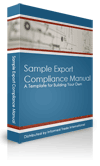Exemptions from the Registration Requirement
There are numerous provisions in the ITAR that carve out exemptions for specific persons and entities to reduce the administrative burden of having to register as a broker (and subsequently obtain an approval for brokering activities).
US Connection Predecessor to Registration
Broker registration requirements require substantial links to the United States. They apply only to US persons, foreign persons located in the United States, or and foreign persons outside of the United States but in a position where their decisionmaking authority (or securities ownership of their firm) is controlled by US persons. To put it simply: a foreign broker whose brokering firm is foreign-owned will not be subject to ITAR broker registration requirements.
“On Behalf Of” Requirement
The ITAR imposes a registration and approval requirement only on brokers that engage in brokering activities “on behalf of” another person or entity. This language specifically implicates independent brokers and brokering firms, and excepts broker-employees of an arms manufacturer or exporter. As such, internal brokering activities need not precipitate the registration requirement, saving defense article manufacturers and service providers from the administrative headache of doing so.
Government Employees are Exempt
The brokering provisions carve out an exemption for employees of the government – both foreign and domestic governments – but only when such employees are acting in their official capacity. An employee of a government (foreign or domestic) cannot independently broker defense article and service exports.
Does Not Apply to Administrative Services
Facilitation in the administrative sense is exempt. Purely administrative services – including but not limited to real estate, visa, translation, company promotion, and attorney services – does not activate the brokering registration requirements. This makes it much easier for individuals and entities to work with ITAR-compliant firms without having to step-up their processing burden.
Does Not Apply to Certain Exclusive Activities
Section 129.3(b)(2) of the ITAR carves out an exemption for persons engaged in activities that are not associated with the defense export content itself – in other words, for those whose business is not reliant on the fact that the exportation is a defense article. This exemption applies specifically to persons who are exclusively engaged in financing, insurance, transportation, customs brokering, and freight forwarding, despite the fact that these activities are considered “brokering activities” according to the section 129.2(b) definition. No further engagement (beyond what is standard for the industry) is allowed.
It is worth noting that even one-time engagement in brokering activities will precipitate the broker classification. Continuous brokering activity is not a pre-requisite to registration.
Posted on October 7th, 2016 by admin
Filed under: ITAR | Comments Off on Exemptions from the Registration Requirement


